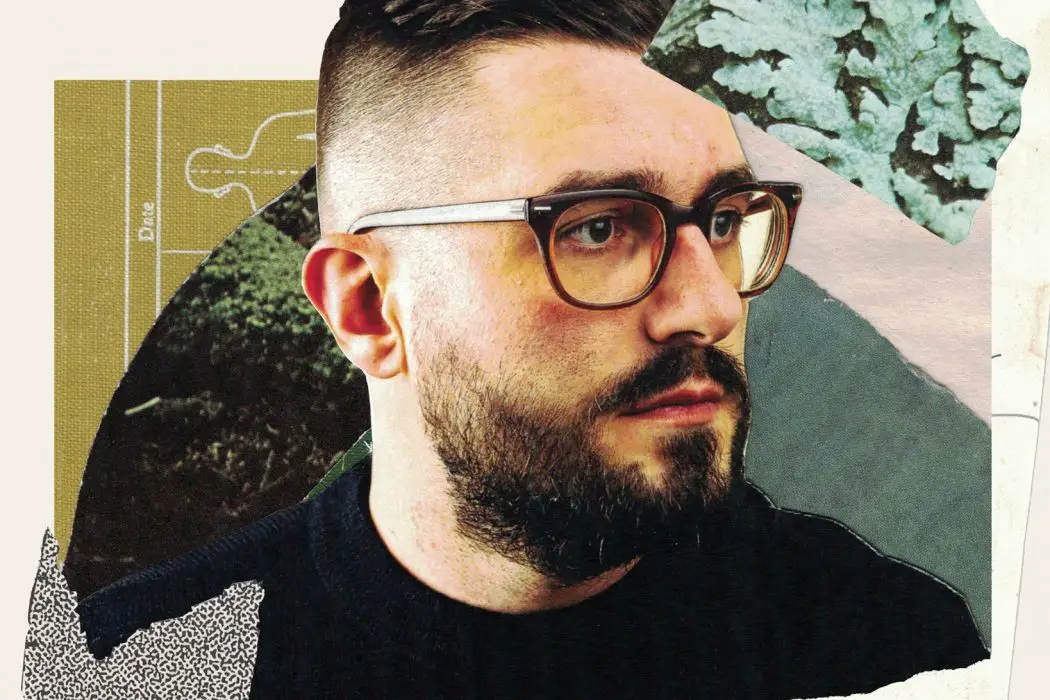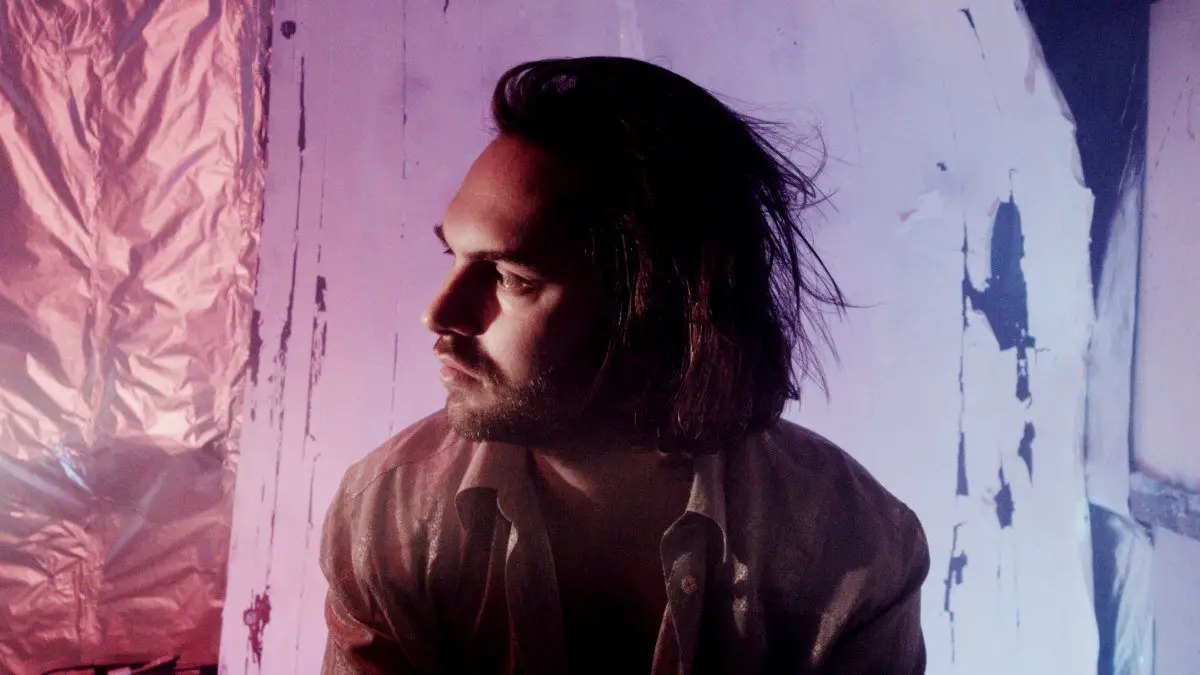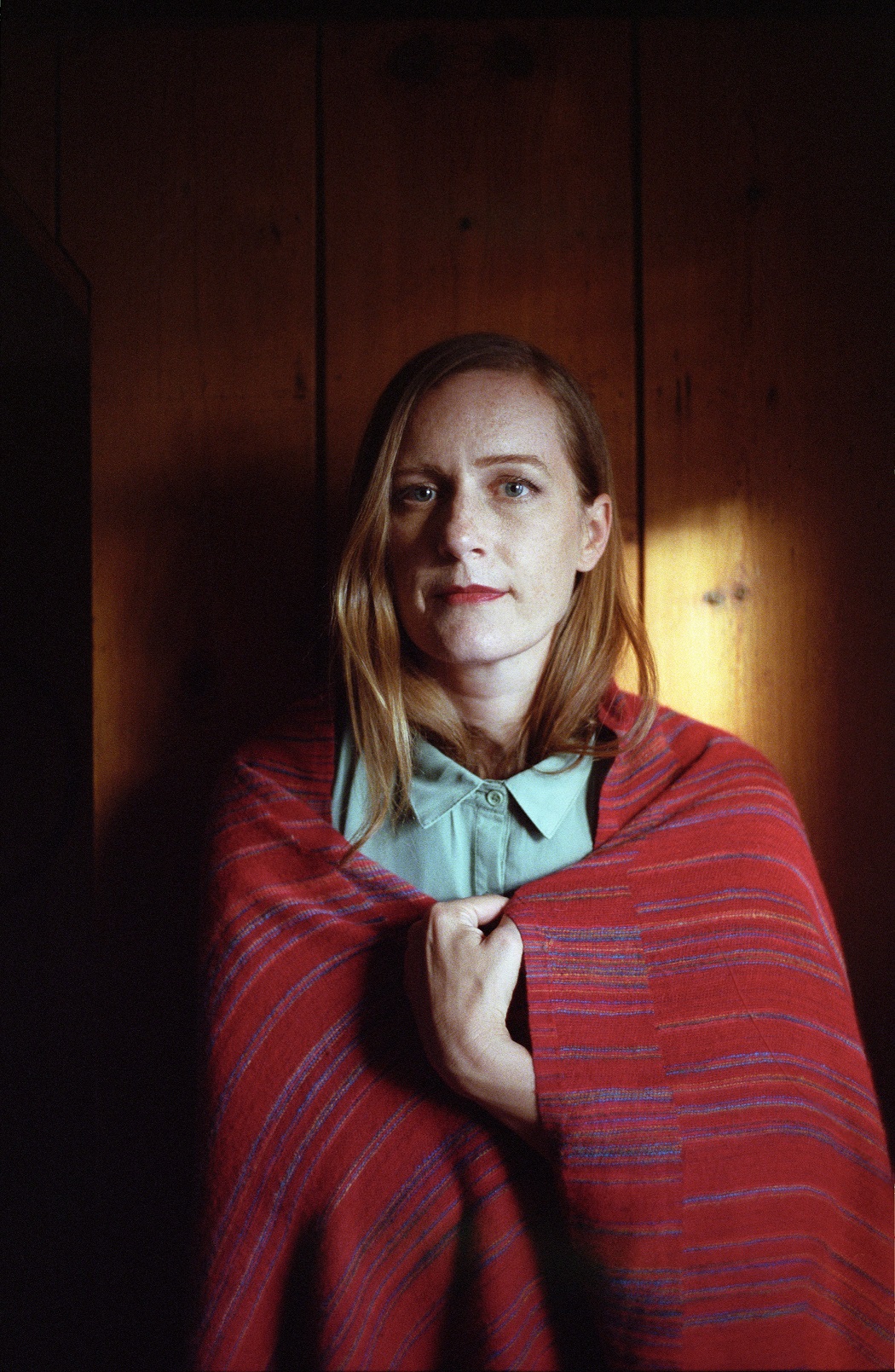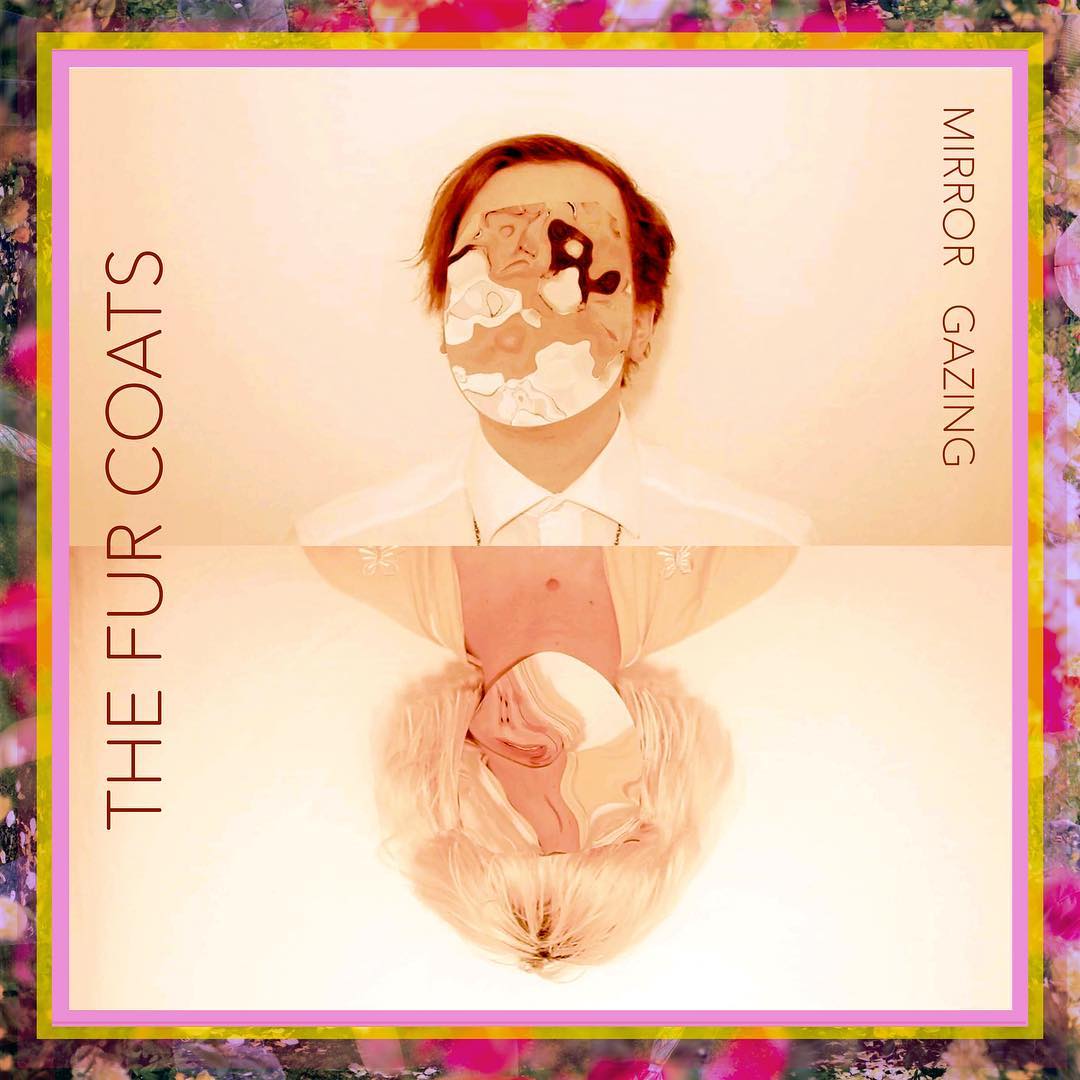Atwood Magazine spoke with Into It. Over It. on taking time to make latest album Figure, the changes to the band, and more!
— —
The life of a musician can be relentless. Whether you’re facing an arduous touring schedule or quickly writing your latest album, it eventually starts to weigh on you. Into It. Over It. founder and songwriter Evan Weiss is all too familiar with the things musicians do to survive.

Whether it’s with Into It. Over It. or Pet Symmetry or Their/They’re/There, Weiss is a well-known and respected figure amongst emo and indie rock fans. While so much has changed since Weiss released Standards in 2016 both inside the band and out, the adjustments have given the 35-year-old songwriter space to expand on his sound and really have space to be creative.
Figure is a breakup record where Weiss tells about everything he experienced in 2017. Welcoming in electronic elements and collaboration from new Into It. Over It. drummer Adam Beck, the album details a number of the parts of coming to terms with loss and rebuilding yourself afterward with tracks that can be biting (“Courtesy Greeting“), thoughtful (“A Lyric In My Head I Haven’t Thought Of Yet“), or all too familiar to anyone who has lived in their loss (“They Built Our Bench Again In Palmer Square“).
While Figure was written and recorded well before the coronavirus crisis struck, some elements of the record end up feeling like a commentary on it like “We Prefer Indoors.” Even though the band can’t tour and have a traditional album cycle, Weiss told Atwood Magazine that while he was upset for people that can’t hit the road, the chance to reinvent the album rollout is exciting.
“What can we do creatively to re-define what an album cycle looks like? And come up with new and cool ways to promote that record that don’t necessarily involve having to spend every night in a club,” he told Atwood. “For the record: I’m excited about that. I don’t wish there to be a global pandemic. I don’t wish for my friends who put out records this year who were really excited about touring to be losing their touring opportunities. That, to me, is a fucking tragedy, and it will always be a tragedy. Mentally where I’m at is in a totally different headspace from the desire to be on the road.”
During our interview, Weiss dove into taking time to make Figure, the changes to the band, and more!
Listen: ‘Figure’ – Into It. Over It.
A CONVERSATION WITH INTO IT. OVER IT.
*This interview has been edited for length and clarity.*
Atwood Magazine: I saw that you’re doing a Patreon, which a lot of artists are doing. What’s that like? Do you feel like that’s rewarding?
Several years ago in 2012, I started a record label, and starting a record label is maybe the worst thing you could possibly do, if you’re hoping to make money [laughs].
That’s what I’ve heard!
It is not a financially viable situation. I ran it for a few releases. Most of them were inner-circle: one was a Pet Symmetry 7-inch, which is another band that I play in, and I’d done a Kittyhawk LP, which was my girlfriend at the time’s band and worked on this Jazz June record as a producer, and I really loved that record The Medicine. So I wanted to be a part of that release, but I co-released that with Topshelf, and I co-released the Sorority Noise record with another label, and I was working on all these things that were kinda how I could contribute to something where I wasn’t necessarily worried about the profit. More just so: hey, if I’m gonna put in a thousand bucks, I just hope I get my thousand bucks back.
Then eventually, the label became too much of a drain to be able to do in the way that I genuinely wanted.
[For the rollout on the Into It. Over It. album,] I thought about [doing a newsletter], and there were things that I really dug about that idea and also things that I didn’t dig about that idea. I feel like the thing that I didn’t dig about the newsletter is there’s no real call to action. There’s no real incentivization. It’s kind of sloppy with: “Hey, I’m gonna send you these emails with no real way to interact,” and it’s just this updated email, but I’m also gonna be pushing you to this link, and pushing you to this link-
And then they go to the promotions tab in your email.
Yeah. What can I do to get a centralized location where people can come to one place and get all the things they would want? Then I thought about the Patreon thing. A lot of bands have been doing Patreon. I talked to a few friends about it. I talked to my friend Kevin Devine [who] has been doing Patreon. I talked to Ratboys about it, because they had just gotten started before me. I wanted to do something different with that.
I play in a multitude of different projects, and I think if you’re gonna subscribe to one, I feel like it doesn’t make sense to have to subscribe to four different things independently. I feel like you should just subscribe to one thing that gets you access to all these things, and then beyond that, I’m playing in all these multitudes of things with this wide group of different people. I’m in four to five bands, and that four to five bands are split across 10 additional members, but shouldn’t those people also have the ability to also share what they’re doing?
The idea came about to run it like a community-driven project rather than a single artist project, where if you sign up, you basically get access to all these different things, whether that’s Pet Symmetry or Their/They’re/There or Into It. Over It. or any number of projects I was in before or maybe in later, but also the projects of what’s happening with—cause Erik [Czaja] from Pet Symmetry plays in three other bands, and Marcus [Nuccio, of Pet Symmetry] plays in three other bands, and Adam [Beck] from Into It. Over It. plays in three other bands, and if you’re signing up for one, you’re also signing up to be interested in all these other people too. It shouldn’t just be me. It should be everybody.
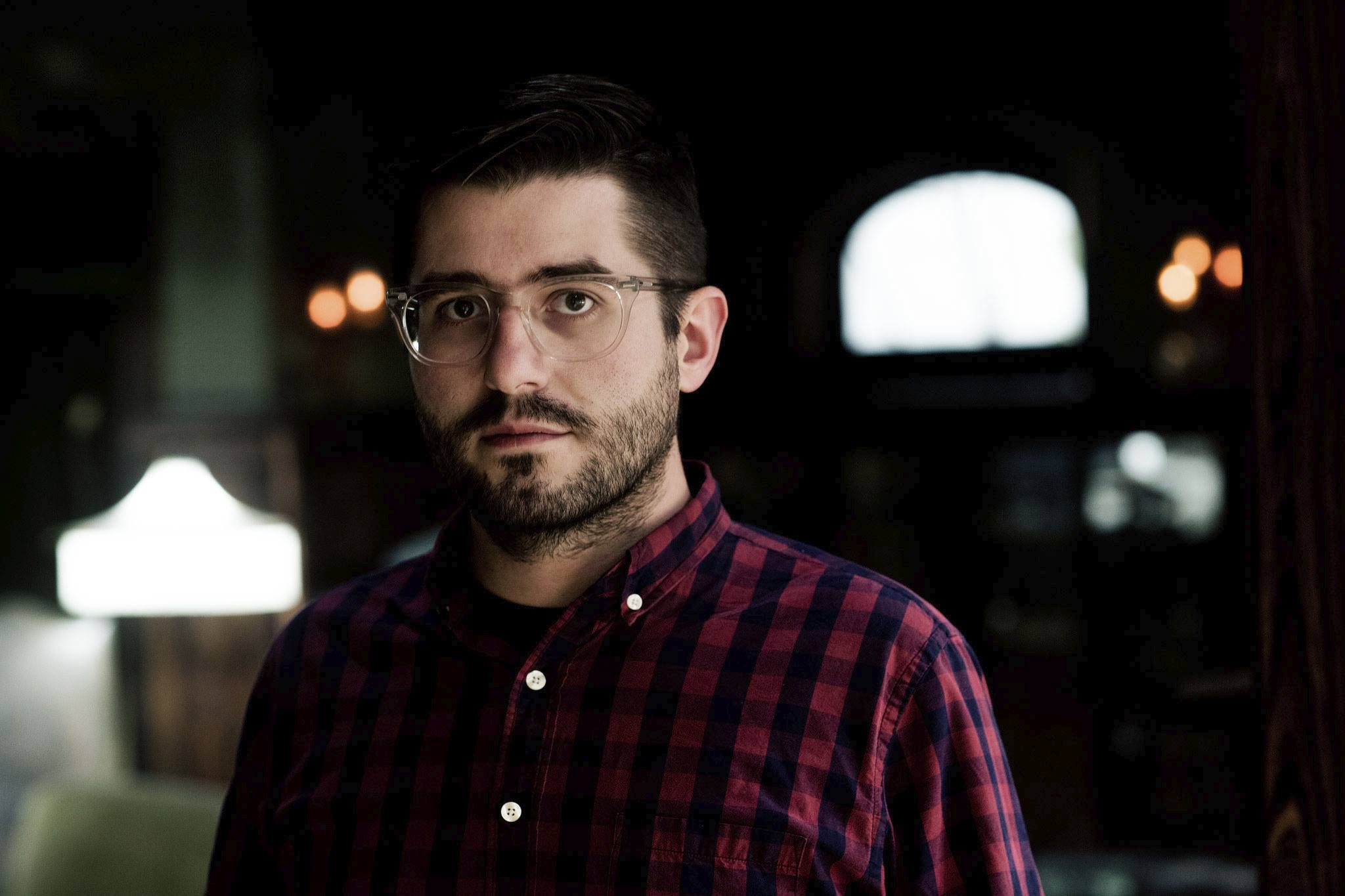
It’s been four years since the last Into It. Over It. record, and the last album you put out was Pet Symmetry’s Vision, and I know the philosophy of Pet Symmetry is to have fun, but this is a very serious album. Do you try to balance the fun and serious stuff?
Into It. Over It.: Yes. The quick version of that question is: yes, there are multiple vehicles that exist in order to satisfy multiple creative visions. So Pet Sym is the band that exists to be the low pressure, goofball side of, at least my songwriting personality. There’s so many aspects to Pet Symmetry or Their/They’re/There that are completely different. Their/They’re/There is an opportunity to play in a band that is really technically proficient and kind of shreddy, which is a thing that doesn’t drive me with Into It. Over It. as much anymore as it did when it started. Pet Symmetry is an opportunity to be wowed in a fun rock band, which is something that doesn’t drive me with Into It. Over It. as the same way as when Into It. Over It. started.
As Into It. Over It. began to develop into this new thing that was satisfying a core of a vision that was mine, there were other aspects of the creative process that I was trying to remove from Into It. Over It., but still wanted to see exist somewhere else.
Not to mention that I just love the collaboration of playing with Erik and Marcus or playing with Matt, Frank, and Jared that I don’t necessarily see translating into Into It. Over It., but it’s still something I truly love and enjoy. There are different lyrical content spread across each band. There are different sonic choices and vibes that are spread across each band. Not to mention that I play bass in each of those bands, and I play guitar in Into It. Over It. Also, there’s different primary songwriters.
They are vehicles to all satisfy one over-arching goal, but each one has their own path, and that was really important to me. All those bands started around the time that Intersections was being written, and Intersections was a departure from Proper and the previous Into It. Over It. material, and those were vehicles to work with different people, learn new skills, and learn new songwriting tactics, and also have another outlet for sonic creativity and possibility that I was no longer going to get from Into It. Over It. as I began to carve a path for Into It. Over It.
What was the writing and recording process like for Figure? Was it spread out?
Into It. Over It.: Josh [Sparks] was the old drummer. We’d worked and played together for many years. Probably from 2012 until 2016, and it was actually the Trump election, which had kind of put the—I don’t want to say the kibosh, but that was the impetus for us taking a step back. We were all in our early 30’s. We watched that happen while we were on a tour in Europe and realized that we’re without insurance, and we didn’t have career direction and we were living tour to tour, maybe paycheck to paycheck. I was in an obscene amount of debt. All of us had been touring for a decade and not really seeing much growth in it as a lifestyle. We ended that year, and no one was under a recording contract anymore. There weren’t any tours booked upcoming. We all decided that it was time to maybe reevaluate what we were doing and why.
We all got jobs to be perfectly honest. We took a step back. Josh decided to leave. He didn’t want to tour in a van anymore, and the rest of us didn’t want to either. He said the thing that we were all wanting to say. We all still remain really good friends to this day. We still work together, and talk all the time and see each other and hang out. It was just a thing that we’d expended our resources completely both mentally and physically.
Josh had agreed to—everyone agreed to do the last remaining shows that were on the books, which had carried us up until January 12—I think it was January 12, 2017 was the very last show. The very last full band show that we’d done at the time was at The Metro in Chicago, and the opening band was a band that I’d chosen, part one, because they’re awesome, but also because Adam who is the drummer in that band was someone who I was kind of scouting to take Josh’s place.
Josh and Adam were buds, and I was talking to Josh about, “Hey could you do some reconnaissance work? Do you think Adam’s the right person to take your spot? Let me know what you think. Let’s get some feedback and talk about it.” Josh had begun hanging out with him and doing sessions with him and practices, rehearsals. They were giving each other lessons for a little while, which was really cool.
We watched the show of this opening band playing for him. Him and I both agreed, very openly that Adam was the right person to fill the shoes. I talked to Adam about it, and Adam was really excited, and we started getting together in May of 2017, and our very first rehearsal, we wrote a song together, which is very rare for me. It’s very rare that I play with anybody and be able to write a complete song in a single rehearsal. It just wound up being the right fit. We really vibed together in how we communicated about writing. His style matched mine, and over the following two and a half years we wrote 30 songs together for what would ultimately be the sessions for Figure.
From that, we chose the 12 that we thought would fit the best. We didn’t even choose the 12 that we thought were maybe the best songs. We just chose what we thought would be a really good pairing.
We started recording in January 2019, and we worked on it for about seven months in the studio, and we all have full-time jobs. It’d be nights and weekends, here and there, working on stuff when we could, and I think we got most of the music done between January and May, started doing vocals in May. Vocals ran from like May to August and then mixing went from August to November, and then we got it mastered. It was really nice to not be pressured. We had our own space. We had our own studio. It was a very calm, collected atmosphere. We’d work on stuff when we could, and we had time to listen to it and absorb it and really decided what worked and what didn’t, and if we needed to retrack something, we could. If we needed to add something, we could. There wasn’t this rush or this feeling of needing to get something done to meet a timeline.
Previously, that’d always been the case. I think Proper was written in a month and recorded in two weeks. Intersections was written in a month and recorded in a month. Standards was written in a month and recorded in a month. To write something over three years and record it over seven months was a totally different way of thinking and way of prioritizing our time, and I think it really suited the songs. It suited the process, and it really allowed us to really get the sounds and the attitude and the structure that you wanted, and I think you can hear that on the record. It sounds way more developed, and it sounds like there’s a clear story arch, and the artwork speaks to that too. Everything really felt like we were very intentional and took our time on it.
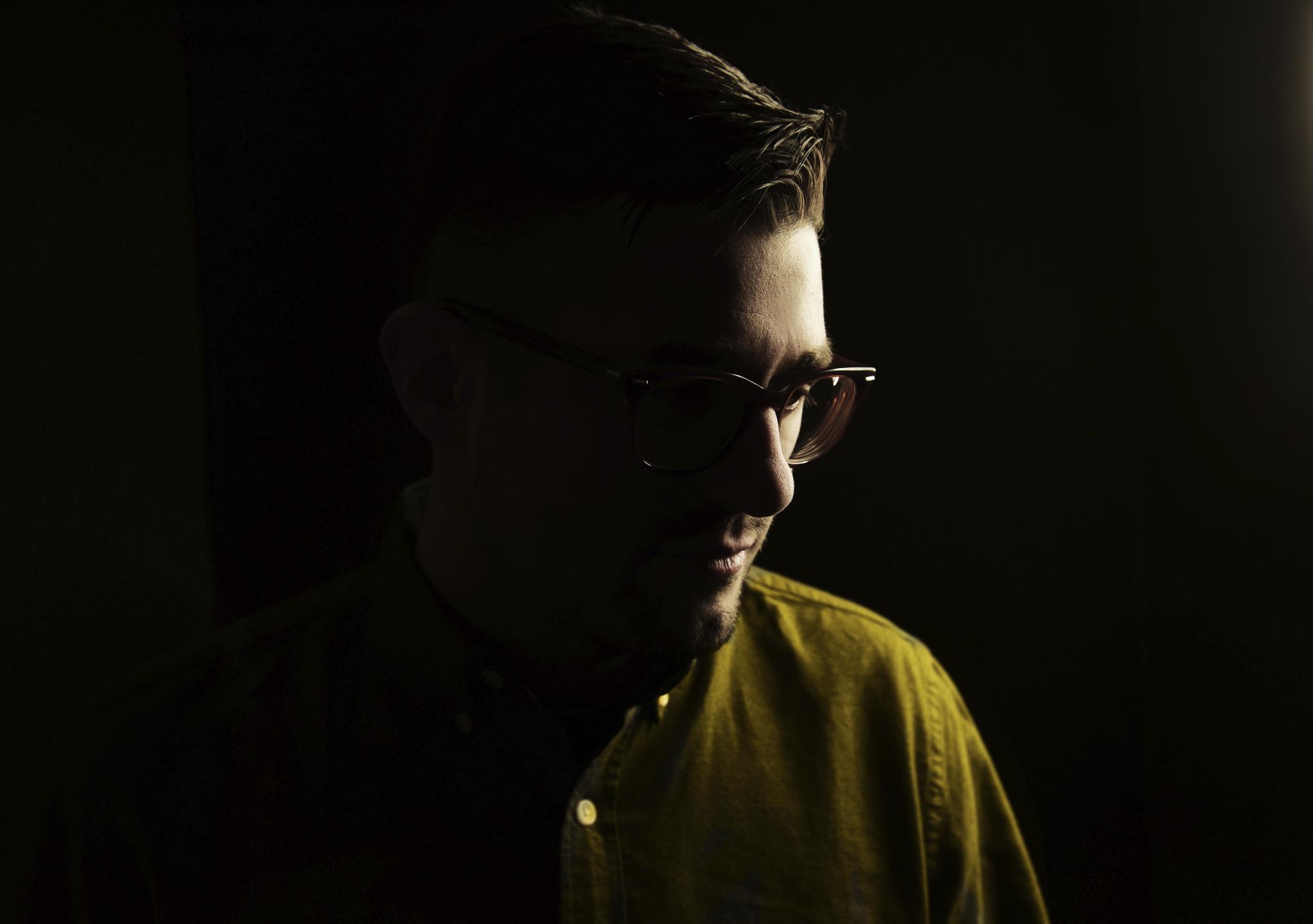
In 2017, you went from working full time as a musician to a 9 to 5 and had a relationship end. How does that manifest itself on Figure?
Into It. Over It.: For a while, I was really anti-the idea of writing a breakup record. I was really against it. I was like, “Eh, it’s so cliché. Why would I want to do that? That’s just what everybody would expect. Why would I do that?” My friends who I tell this to-because I’d be like, “Fuck that shit. I don’t wanna write a breakup record.” They would be like, “Why wouldn’t you write a breakup record? The breakup record is what everybody wants!” [Laughs] I was like, “I don’t wanna do it!”
I went into it, consciously trying not to do it, and when it came time to write, it was all that came out. The record itself is about 2017 as a whole, just about that year starting out the way it did, and the recovery that got me through the end of it. There’s some glimpses, flashes of things from 2018 and 2019 in the songwriting material. Not all of it is hyper-literal in the way that most Into It. Over It. songs or records would be, but the majority of it focuses on that timeline.
At its core, that’s what it is; it’s a breakup record. It’s a lot of reckoning and a lot of recovery and a lot realization from going from one lifestyle to a completely different one in a very short period of time, and learning a lot about what was so bogus about the lifestyle I had been in before. A lot of the ways that a touring lifestyle can allow a human being to conduct themselves is just not cool. It’s not responsible or ethical or healthy. When you’re in it, you don’t realize you’re in it. It’s like being an addict. When you’re addicted to something, you don’t realize you have a problem until you’re out of the problem, and then you can look back on it with perspective and understand like “Oh fuck. I’d been completely disrespecting my friends or my family or my relationship or my peers or those closest to me” in a way that you just weren’t concentrated on because your whole goal structure is set up: “How can I pay my rent? How can I get the next biggest opportunity? How can I get the next biggest tour? How can I work with the producer I really want to work with?” It’s just this series of micro-problems that you build up in your head to think that these are the most important things. It takes not having any of that to realize that those things aren’t fucking important at all.
Once I was out of it and was able to get my head above water for a minute and realize “Oh, I was focused entirely on the wrong shit for so long.” To the point where—you and I are doing this interview right now, and we’re having, what I think, is a great conversation. I’d be so hung up five years ago: “Who’s gonna review the record? Who am I gonna talk to? What’s the public perception gonna be? Will I get that tour with that band I really want to tour with?” Then you don’t get it, and you’re like “What the fuck?” And you hold this grudge or have this chip on your shoulder. Yo, the world doesn’t owe you anything. No one owes me. No one owes you. No one owes any band or any artist or any musician anything.
You’re taught, trained almost by management or a booking agent that “you deserve this stuff.” That’s not the truth. I get why management and booking agents would want to build up their artists, cause that’s their job, but at the end of the day, it’s like, “Man, fuck. Nobody owes anybody shit.” To realize that in real-time and reconcile with that and understand that and be able to re-approach music with this fresh perspective, this healthier perspective and just understanding: we can just create, and that’s good enough. If we’re satisfied with what we’re doing, and we’re happy with what we’re doing, that’s true success. That’s a way different outlook.
That helps a band like me or me and Adam or any band realize, rediscover what’s exciting about being in a band again for the first time. That’s the overarching message of this record.
Do you feel like having the security of having a full-time job and a relationship and being able to take time without entirely putting your focus on the band. Do you feel like that helps you create more easily?
Into It. Over It.: One billion percent, because there’s no pressing pressure and anxiety to say yes to playing a festival or say yes to an advertising campaign or say yes to anything in order to survive. When the motivation is not survival, that’s a way different motivator. The pressure is completely removed in a way that makes the relationship a lot healthier.
That being said, I’m also in a position where we’re in the middle of a global pandemic, and I’m looking for anything at this moment to keep my mind occupied in a way that’s productive. I’m diving headfirst into work and recording and writing and creation in order to distract myself from the real anxiety of what’s happening globally, but that’s much different from “If I don’t say yes to this fucking corporate-sponsored, I’m not gonna be able to pay my rent this month.” That’s a completely different thing. There is a level of moral relief and a level of—I know that Into It. Over It. isn’t going to be the fucking most famous band in the world. There were moments where I had delusions of grandeur like we were supposed to be the biggest fucking band on earth for a while, and that’s total fucking bullshit. There was no realistic moment where that’s ever going to exist. I had this thought in my head that maybe that was true and I was getting the short end of the stick somehow. That’s total crap.
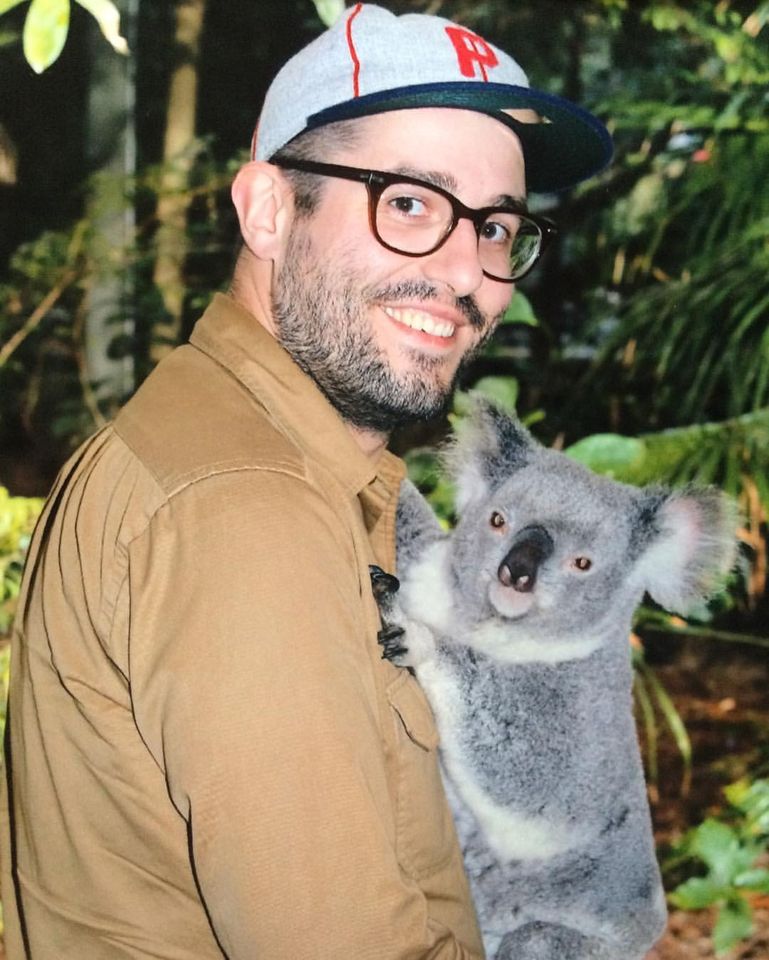
My two favorite songs on the record were “Courtesy Greeting” and “Brushstrokes.” Can you tell me more about those?
Into It. Over It.: “Courtesy Greeting,” to me, is what I think will potentially be to listeners what “Midnight: Carroll Street” was on Proper to listeners. That’s not my “Midnight: Carroll Street.” My “Midnight: Carroll Street” on the record is “Dressing Down,” but that’s the song that I feel has the possibility to resonate with people the most. The writing and recording process for that song was really natural. A lot of the sounds that are on that recording are from the demo. We actually just grabbed a lot of the stuff that we already made and used that on the actual recording: the glitchy intro, the faded out outro, a lot of the found sounds, and really weird effects that exist are all stuff from the original demo recording, which we’d done in our practice space with a single microphone.
Re-recording that one, the org of that song, the songwriting structure was a very natural process. It has one of my favorite lyrics on the record [“It’s about time I come to terms with who I’ve become/You see, no one talks about the terms until the damage is done”]. That song to me is really really special, and it’s to me the biggest emotional roller coaster. I’m glad it’s your favorite. That maybe proves my thesis. [Laughs].
“Brushstrokes” was a little bit more of a challenge, because there’s no chorus to that song. There’s no hook. It’s essential three verses with a bridge smacked in the middle. The challenge in that one became how can we make this song evolve? How can we make each one of these verses feel like it’s growing and growing and growing? Adam was really experimenting at that time in the writing process with trying to write a linear drum part. If you notice the drum part in that song, it never repeats. There’s a slight variation each time he works through that cycle. That was more of a fun songwriting challenge than anything.
Besides being the shortest song on the record, I think it’s only two and a half minutes long or maybe just under three. It came out a lot better than we expected. It came out a lot better than we expected. I know it’s one of the hardest songs for Adam to play. So if you’re a drumming fan, I know that’s one that he’s probably going to do a How To Play video for our Patreon, because it’s so detailed. That one came out shockingly better than I think we’d all anticipated.
I’ll have to go back and listen to the drum part because I love music and have a terrible ear for technical stuff? *laughs*
Into It. Over It.: That’s good! That’s the whole idea. We’re trying to write tricky shit and have it not be obviously tricky. That’s always been my goal with songwriting. How do you do something where if you’re a musician, you know it’s fucking wild, but if you’re the average listener, you’d have no idea. Since Proper, that’s always been the thought that’s stuck in the back of my head.
You said this album was recorded a year ago, but the opening song, “They Built Our Bench in Palmer Square” feels like it sums up how I think a lot of people have felt this year - or at least how I’ve felt. Can you speak to that?
Into It. Over It.: That was one of the later songs we wrote for the record, and it just spawned from a little loop idea and a guitar line. Similar to “Courtesy Greeting” it was a song that came together really naturally, and to me, it was the only one that really felt like an apt album opener.
The way that the song starts on the record is not how I imagined it originally. Originally, it was supposed to start with this loop that exists at one point in the actual recording, it’s toward the end. It’s kind of this pulse loop. I wanted that at the beginning. I wanted to build this tension. That eventually got axed by Jason, who did the mixing, because he felt like he wanted to leave the listener with a sense of hope, rather than a sense of tension. Even though the song is literally about breaking up on this bench that’s 100 yards from my apartment.
It’s wild. I wrote and sang the lyrics to that song in May 2019, and we were none the wiser. Talk about a song like “We Prefer Indoors,” that was written even before that. That was written in 2018. To think about where we are now and the songs are coming out now, they were written so long ago. I’m very curious to see how people are going to respond to these songs. It’s a very woe-is-me record in a time when people may be either are not going to want to hear a woe-is-me record at all or are really going to identify with a woe-is-me record right now. The timing is all very interesting. I’m curious to see how that plays out to the general public or the general listener, knowing that a lot of the stuff was written years ago. We’re already onto the next thing. We’re already thinking five steps ahead.
Watch: “We Prefer Indoors” – Into It. Over It.
The next one’s the pandemic record!
Into It. Over It.: There are some new Pet Sym songs we’re working on, and we’re trying to figure out ways—we don’t really wanna sing about a pandemic, but also how do you not sing about the fucking pandemic right now? It’s like writing music in the 70s during the Vietnam War or during the 40s during World War II, how do you not talk about these things? We’re all gonna come out of this changed with a new perspective. I’m curious to see how bands I’m in, and me, being a lyric writer, what my lyrics turn out to be and what our peers are gonna do.
I thought the video for “We Prefer Indoors” was a fun video. It almost feels like a social-distancing sitcom. Was there always going to be a video for it or was that inspired by our current predicament?
Into It. Over It.: You know what’s so funny—and you’re the first person I’ve gotten to talk to about this—the video for “We Prefer Indoors” was developed completely in November of 2019. The whole idea—I met with Jake [Nokovic] and John [TerEick] who do coool—I got connected with them, because they did the videos for Ratboys, and I thought the Ratboys videos were awesome. Marcus plays in Ratboys and Pet Symmetry, he got me hooked up with them. We had a meeting outside their little studio downtown and spitballed these video ideas, and we had ideas for four or five songs. “We Prefer Indoors” idea was these musicians are all shut-ins. They just like to communicate. They don’t even wanna get together for band practice. They just like to FaceTime on their phone all the time and share what they’re doing all the time.
Originally, we were gonna release the record in June. The album layout that I’d designed along with my friends Andy and Lynette was so detailed that in order to get the album layout that we wanted, we had to have the records delivered by boat instead of air to offset the cost. We had to push the record release to September to allow for the time for the records to be delivered by boat. That’s the only reason that the record’s coming out in September and not in June. That gave us more time to work on the rollout.
Then, all of a sudden, fucking COVID happened. No one was expecting that. Circle back, it’s April, and we’re like, “Well initially we were working on this June timeline, but now we have a lot more time and also none of us are allowed to be in the same place together,” and we looked back on all of our music video ideas—the only one we could do was the “We Prefer Indoors” idea. We redeveloped and retooled that idea to be something we could shoot with social-distancing, and it wound up working out perfectly for the time. We shot most of that video in March during deep quarantine on our phones. We just took videos on our phones of us doing all this shit and sent it to John and Jake, and then phase 4 hit in Chicago, and we were able to more comfortably shoot the interior shots that are in that video, but even then, I’d be in one room and shoot the shot, and then I’d be like, “Cool, got the shot,” and then, I’d walk out of the room, and then someone else would come in, turn the camera off, and we’d build another shot in another room, and we’d have to play this game of shuffling in and out.
— —

Connect to Into It. Over It. on
Facebook, Twitter, Instagram
Discover new music on Atwood Magazine
? © Sam Porter/Lynette Sage
:: Stream Into It. Over It. ::

